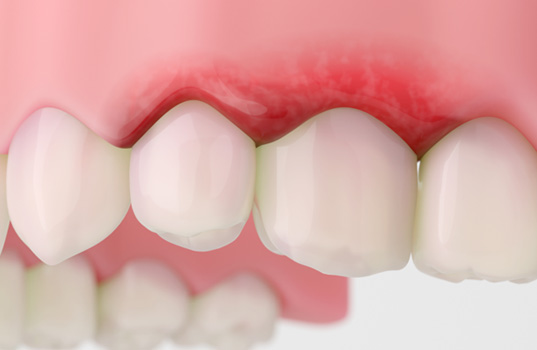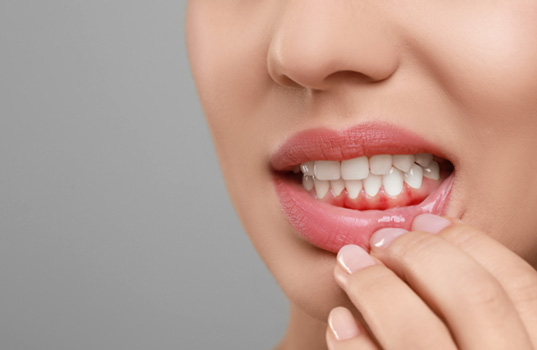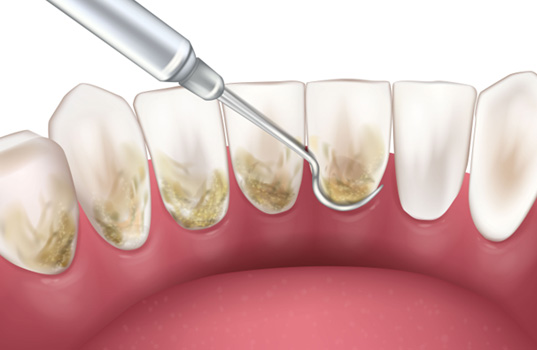Gum Disease Treatment – St. Augustine, FL
Solutions for Inflamed, Bleeding Gums
Did you know that almost half of all adults over the age of 30 in the United States have some form of gum disease? This surprisingly common oral health issue can do more damage than many people realize, even resulting in tooth loss if it goes untreated for too long. Fortunately, our team at Salt Run Family Dentistry has multiple ways to treat the problem and prevent it from growing worse. Give us a call today if you think you might be in need of gum disease treatment in St. Augustine.
Why Choose Salt Run Family Dentistry for Gum Disease Treatment?
- Thorough, Gentle Scaling and Root Planing
- Dental Team That Utilizes Advanced Technology and Treatments
- Friendly Dentists Who Treat Patients Like Family
What is Gum Disease?

Poor oral hygiene practices can cause plaque and tartar to accumulate in your mouth, which can ultimately lead to an infection of your gums known as gum disease. It’s important to note that gum disease often starts relatively mild; you may not even notice any symptoms at first. But if it remains unaddressed, it can move on to its more advanced stages and ultimately lead to severe oral and overall health problems.
Symptoms of Gum Disease

The earliest form of gum disease, also known as gingivitis, is often characterized by red, swollen, and unusually tender gum tissue. It can also cause your gums to bleed easily whenever you brush or floss, and it can even give you chronic bad breath.
If gum disease reaches the more advanced periodontitis stage, you may notice changes in your bite, and you might experience pain when you chew your food. In particularly severe cases, your teeth may come loose or even fall out altogether.
How Do We Treat Gum Disease?

Before we can treat your gum disease, we’ll need to examine your mouth to learn more about your specific symptoms as well as the overall severity of your condition. Depending on what we find, we may recommend one or more of the following treatment options.
Scaling & Root Planing

A regular dental cleaning won’t always be enough to get rid of all of the plaque and tartar that is contributing to your gum disease. That’s where scaling and root planing come in. With scaling, we’ll thoroughly clean the area around and below your gumline, getting rid of the plaque and tartar that have built up over time. Then we’ll use root planing to smooth out any rough surfaces on your tooth roots; this will make it easier for the gums to reattach themselves to the teeth.
Arestin® Antibiotic Treatment

As gum disease causes your gums to pull away from your teeth, periodontal pockets start to form. These pockets can be difficult to clean thoroughly, and they provide a space where harmful bacteria can easily thrive. Fortunately, our team can apply a special antibiotic known as Arestin® directly to your periodontal pockets. Arestin® can fight the infection at its source by killing hard-to-reach bacteria, which can go a long way toward helping your gums heal.
Bone Grafting

Gum disease can lead to deterioration of the jawbone, which is why the condition often results in tooth loss. If your jawbone has been damaged due to gum disease, we may be able to repair it with a bone graft. With this procedure, we’ll take bone tissue from another part of your body and transplant it to your jaw, which encourages the growth of new bone tissue.
